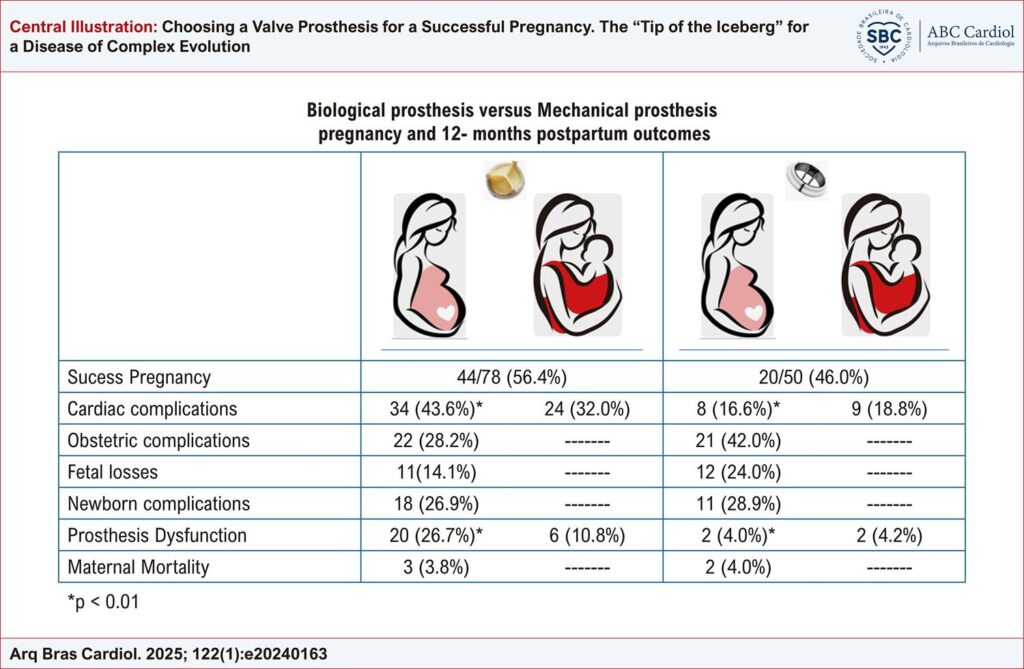Arq. Bras. Cardiol. 2025; 122(1): e20240163
Choosing a Valve Prosthesis for a Successful Pregnancy. The “Tip of the Iceberg” for a Disease of Complex Evolution
This Original Article is referred by the Short Editorial "Cardiac Valve Prosthesis and Pregnancy: Challenges and Strategies".
Abstract
Background
The choice of valve prosthesis in women planning a pregnancy is still controversial. The durability of biological prostheses and the characteristic thrombogenic of mechanical prostheses are limitations to the pregnancy’s successful Objectives: To study the pregnancy success rate after valve prosthesis implantation, and identify the variables related to maternal outcomes.
Methods
Prospective study with 78 pregnant women with bovine pericardial prosthesis (Group BP) and 50 with a mechanical prosthesis (Group MP), who received prior guidance on the risks of pregnancy. The pregnancy success rate was considered in the absence of complications cardiac, obstetric and/or fetal complications.
Results
Successful pregnancy was achieved in 64 (50.0%) patients, not differing between groups (BP 56.4% vs MP 40.0% – p=0.103). The BP group had a higher cardiac events rate and prosthesis dysfunction (43.6% vs 16.0% p<0.001; 26.9% vs 2.0% p<0.001). The frequency of fetal losses (14.1% vs 24.0% p=0.165) and obstetric complications (28.2% vs 42% p=0.127) were not different between the BP and MP groups. The pre-existence of heart failure (odds ratio 8.5; 95% CI [1.4; 50.7]; p=0.019), atrial fibrillation (odds ratio 16.7; 95% CI [5.7; 49 .1]; p<0.001) and dysfunction of the biological prosthesis (odds ratio 12.6; 95% CI [3.0; 52.7]; p=0.001) were the variables predicting complications and/or deaths
Conclusions
Patients with valve prostheses had low maternal-fetal success due to the complicating factors of valve disease, the limited structural survival of biological prostheses and the lack of anticoagulants to guarantee pregnancy. The choice of a prosthesis, whether biological or mechanical, should not be considered an isolated decision, but rather a consequence of a complex outcome of the heart disease.
Keywords: Anticoagulants; Heart Valve Prosthesis; Maternal Death; Pregnancy
404

